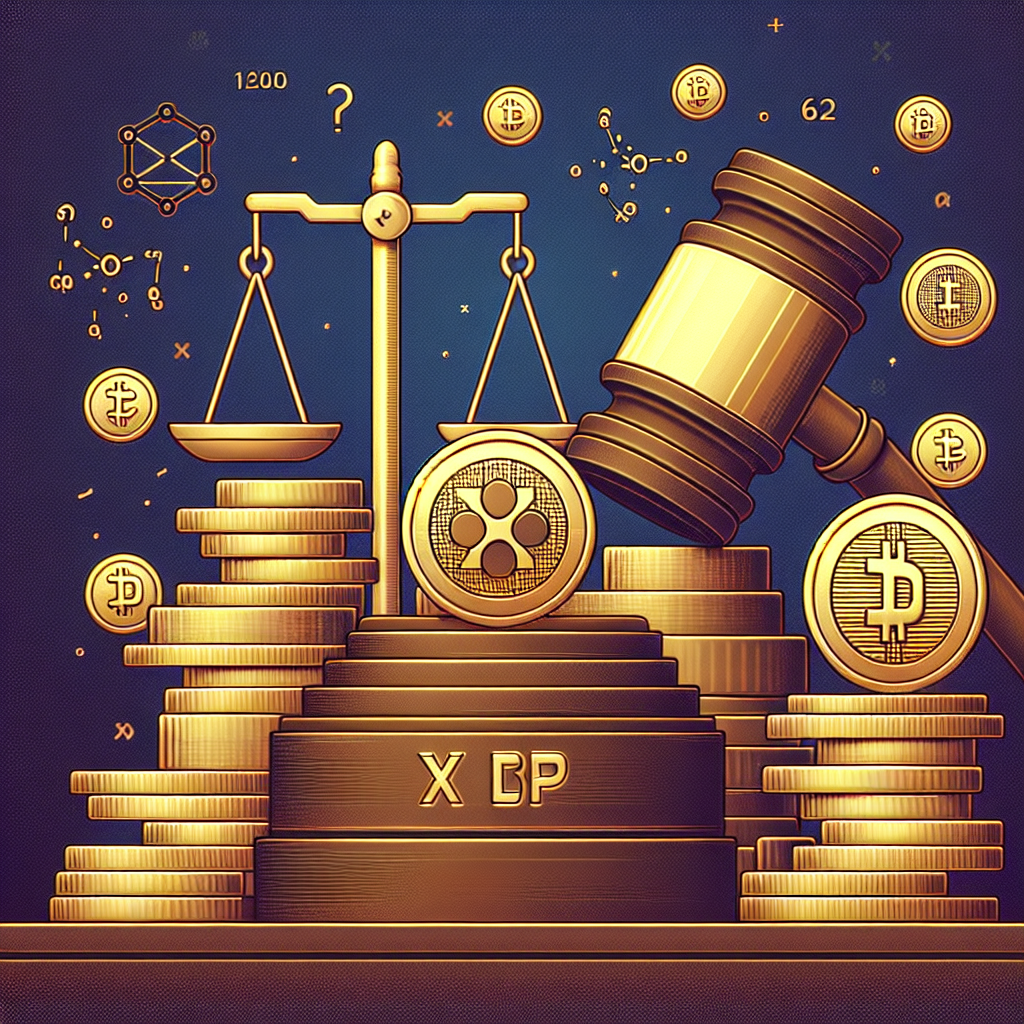Altcoins
SEC Advances Appeal in Ripple Lawsuit Over $130 Million XRP Sales Dispute

The U.S. Securities and Exchange Commission (SEC) has taken a significant step in its ongoing legal battle with Ripple Labs Inc. by officially filing the Civil Appeal pre-argument statement, known as Form C. This development comes amid some confusion within the cryptocurrency community, as the SEC initially missed the deadline for submitting this crucial form.
The SEC’s lawsuit against Ripple has been fraught with controversy from the outset. In August, Judge Analisa Torres ordered Ripple to pay a penalty of approximately $126 million, which many observers believed would mark the end of the legal proceedings. However, the SEC filed a Notice of Appeal, indicating its intention to challenge the ruling. At that time, it was unclear which specific aspects of the lawsuit the SEC intended to contest.
With the filing of Form C, the SEC has clarified its position, stating its intention to appeal the summary judgment or overall decision made by the court. According to Fox Business journalist Eleanor Terrett, the regulator is particularly focused on challenging the programmatic sales of XRP on secondary exchanges. Furthermore, the SEC is scrutinizing the roles of Ripple executives Brad Garlinghouse and Chris Larsen, alleging their involvement in boosting XRP sales.
The SEC’s legal action is not limited to contesting the past actions of Garlinghouse and Larsen. The commission may also challenge their personal offers and sales of XRP. Additionally, the SEC is questioning the distribution of XRP to Ripple employees, which could have broader implications for the company’s internal practices. Interestingly, the SEC has opted not to challenge the $126 million penalty imposed on Ripple, which could complicate the case further.
As the SEC’s appeal progresses, Ripple is expected to file its own Form C in response. This move is necessary as Ripple has already submitted a notice of cross-appeal against the SEC’s claims. Ripple’s Chief Legal Officer, Stuart Alderoty, has suggested that the company’s cross-appeal aims to counter the SEC’s approach of regulation through enforcement, a strategy that Ripple believes stifles innovation within the blockchain industry.
The legal battle has sparked widespread speculation about the potential outcomes. Some analysts believe that Ripple may face an uphill battle in its appeal, particularly given its limited success rate at the 2nd Circuit Court. However, the case’s complexity and high stakes mean that predicting the outcome remains challenging.
The Ripple lawsuit is one of the most high-profile cases in the cryptocurrency industry, with significant implications for the regulation of digital assets. The SEC’s actions reflect its broader efforts to establish clear guidelines for the treatment of cryptocurrencies, which have traditionally operated in a regulatory gray area. The outcome of this case could set a precedent for how digital assets are regulated in the United States and beyond.
Ripple’s leadership, particularly CEO Brad Garlinghouse, has been vocal about the need for regulatory clarity in the cryptocurrency space. In recent statements, Garlinghouse has emphasized the importance of distinguishing between securities and non-securities in the crypto market. He believes that clear guidelines will foster innovation and growth in the industry while protecting investors.
As the legal proceedings continue, both the SEC and Ripple are preparing for a potentially lengthy and complex battle. The outcome will not only impact Ripple’s operations but could also influence how other blockchain companies navigate regulatory challenges in the future.
The Ripple case highlights the ongoing tension between innovation and regulation in the fast-evolving world of cryptocurrencies. While the SEC seeks to assert its authority over digital assets, industry stakeholders are advocating for a balanced approach that encourages growth while safeguarding investor interests. As the case unfolds, it will be closely watched by industry participants, regulators, and legal experts alike, as it may shape the future landscape of cryptocurrency regulation.
-

 Press Releases2 years ago
Press Releases2 years agoGaming Technologies of the New Time!
-

 Altcoins11 months ago
Altcoins11 months agoBitcoin Declines Below $80K: deVere CEO Nigel Green Remains Bullish on Long-Term Outlook Following Strategic U.S. Bitcoin Reserve Announcement
-

 Altcoins11 months ago
Altcoins11 months agoCalls for Enhanced Discussion on Bitcoin as Brazil’s Reserve Asset: A Move Towards ‘Internet’s Gold’
-

 Bitcoin1 year ago
Bitcoin1 year agoBitcoin Surges Past $64K as SEI and POPCAT Lead Daily Crypto Gains on September 25
-

 Press Releases2 years ago
Press Releases2 years agoEvo Exchange: Redefining the Decentralized Exchange Landscape
-

 Bitcoin7 months ago
Bitcoin7 months agoGrayscale Investments Submits Draft Registration for IPO, Aiming for Public Trading in U.S.
-

 Press Releases1 year ago
Press Releases1 year agoCODE, a Newly Born Project Brings Decentralization Back to the Main Menu
-

 Bitcoin7 months ago
Bitcoin7 months agoPeter Schiff Critiques New Crypto Legislation, Claims Bitcoin (BTC) Gains are Short-Lived




